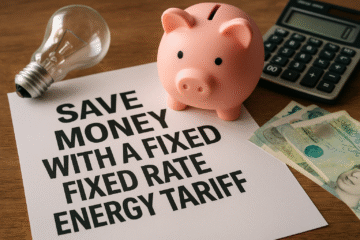Households Face a Potential £17 Annual Rise in Energy Bills Amidst Ofgem's Efforts to Stabilize the Market
In an effort to prevent energy suppliers from succumbing to financial ruin, UK households might witness a £17 per year increase in their energy bills, a measure under contemplation by Ofgem, the industry watchdog.
The consideration comes in the wake of a staggering £2.6bn energy debt accumulated over the summer, attributed to a surge in wholesale energy prices and broader cost of living pressures.
Tim Jarvis, Ofgem's Director General for markets, stressed the difficulty of the decision, acknowledging the prevailing financial strain on households nationwide. “The scale of unrecoverable debt and the potential risk of suppliers exiting the market or going bust—translating to even greater costs for households—compels us to explore all regulatory options at our disposal,” Jarvis stated.
A Timely Dilemma
The potential hike in energy bills, if implemented, will not be in effect until April of next year. Ofgem’s strategy aims to shield consumers from additional financial burdens during the economically demanding winter months. This thoughtful timing reflects a conscientious approach to balancing market stability with consumer protection, especially during financially taxing periods.
In 2021, escalating energy prices contributed to the demise of approximately 30 suppliers, prompting an additional £82 charge for every energy consumer to ensure a consistent energy supply to households.
The looming threat of consumer exposure to inflated costs and diminished service standards if suppliers declare bankruptcy has driven Ofgem to contemplate the one-off rise in bills.
The Pursuit of Equitable Solutions
A consultation process involving the energy industry, consumer groups, and the general public is set to explore the possible options, including the method of implementing any potential increase in bills.
“The quest is to ascertain the most equitable manner of maintaining a stable energy market, and we are committed to achieving this in conjunction with our partners, ensuring the safeguarding of the most vulnerable households,” affirmed Jarvis.
Current energy bill estimations under Ofgem’s latest price cap—impacting 29 million households across England, Wales, and Scotland—are averaging at £1,923 annually for a typical household, a figure that towers over last winter's £1,277. With the discontinuation of the £400 government support per household this winter and analysts projecting a further surge in bills come January, the economic pressure on households remains palpable.
Protecting the Vulnerable
Criticism and concern emanate from various quarters, with Citizens Advice highlighting the peril posed by the potential price cap increase amid soaring energy prices.
Dame Clare Moriarty, Chief Executive of Citizens Advice, expressed concern over escalating unaffordability, advocating for the prioritization of consumers' best interests and calling for augmented bill support this winter for those at highest risk.
Adam Scorer, the Chief Executive of charity National Energy Action, voiced the urgency of addressing the “enormous” energy debt that is “crushing vulnerable households”, while urging the government to intervene.
In response, a spokesperson from the Department for Energy Security and Net Zero encouraged worried individuals to communicate with their suppliers, emphasizing ongoing support for the most vulnerable this winter with measures like a £150 reduction in energy bills for an estimated three million families through the Warm Home Discount, and other financial support initiatives.
As the UK grapples with these significant energy market challenges, the dialogues surrounding fair and sustainable solutions continue to unfold, balancing the imperatives of economic stability, supplier viability, and consumer protection in these financially trying times.
Article Source – BBC News





